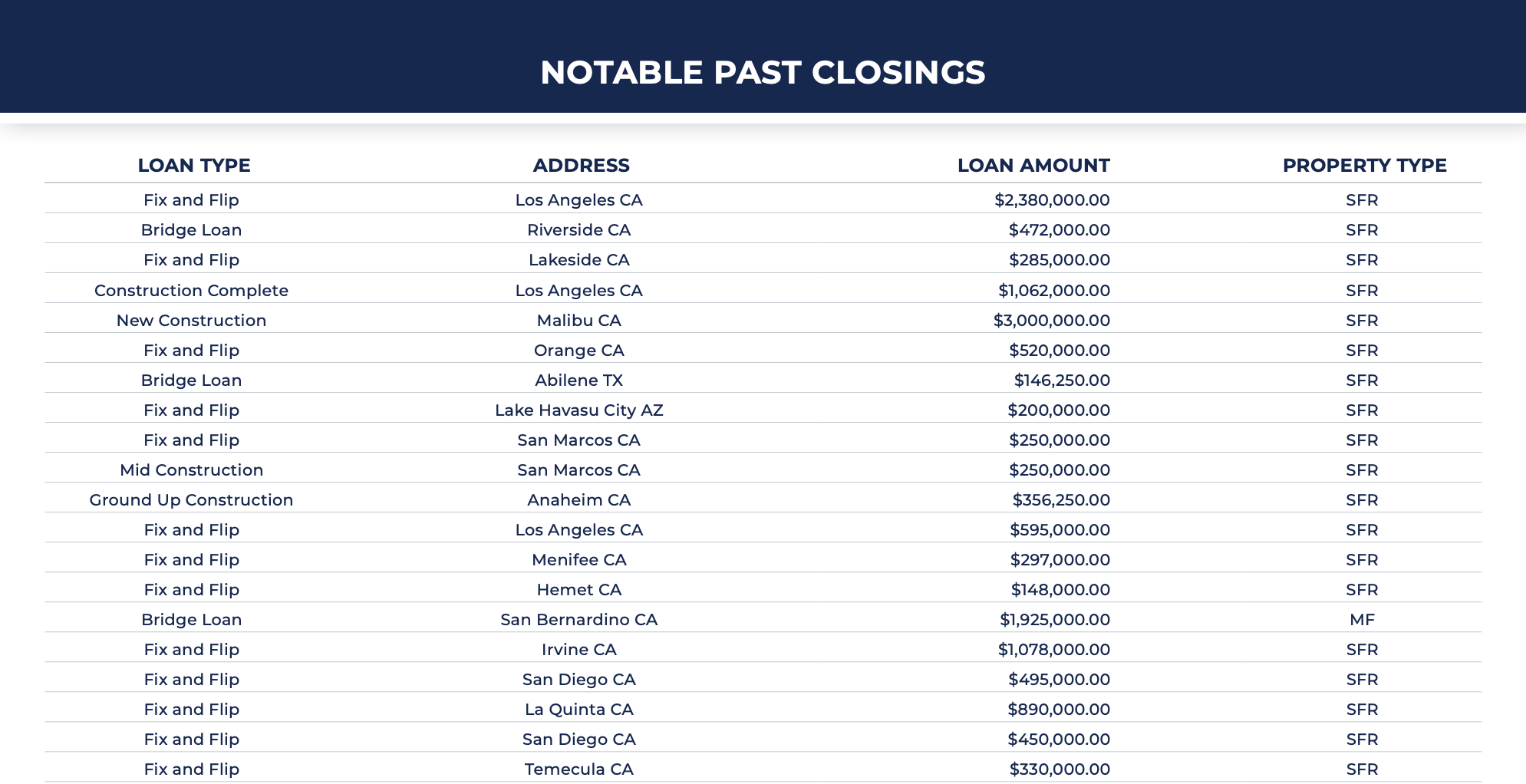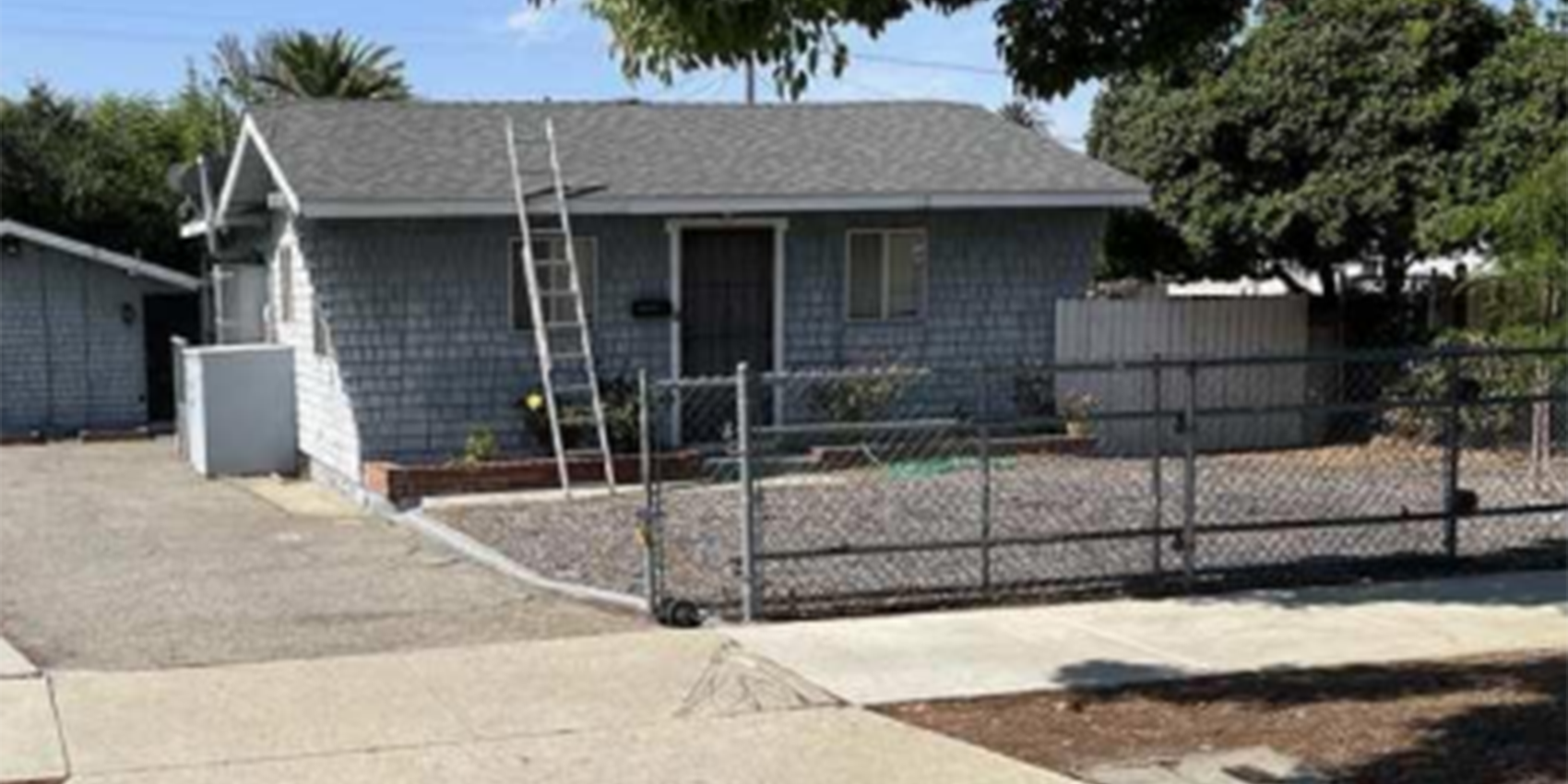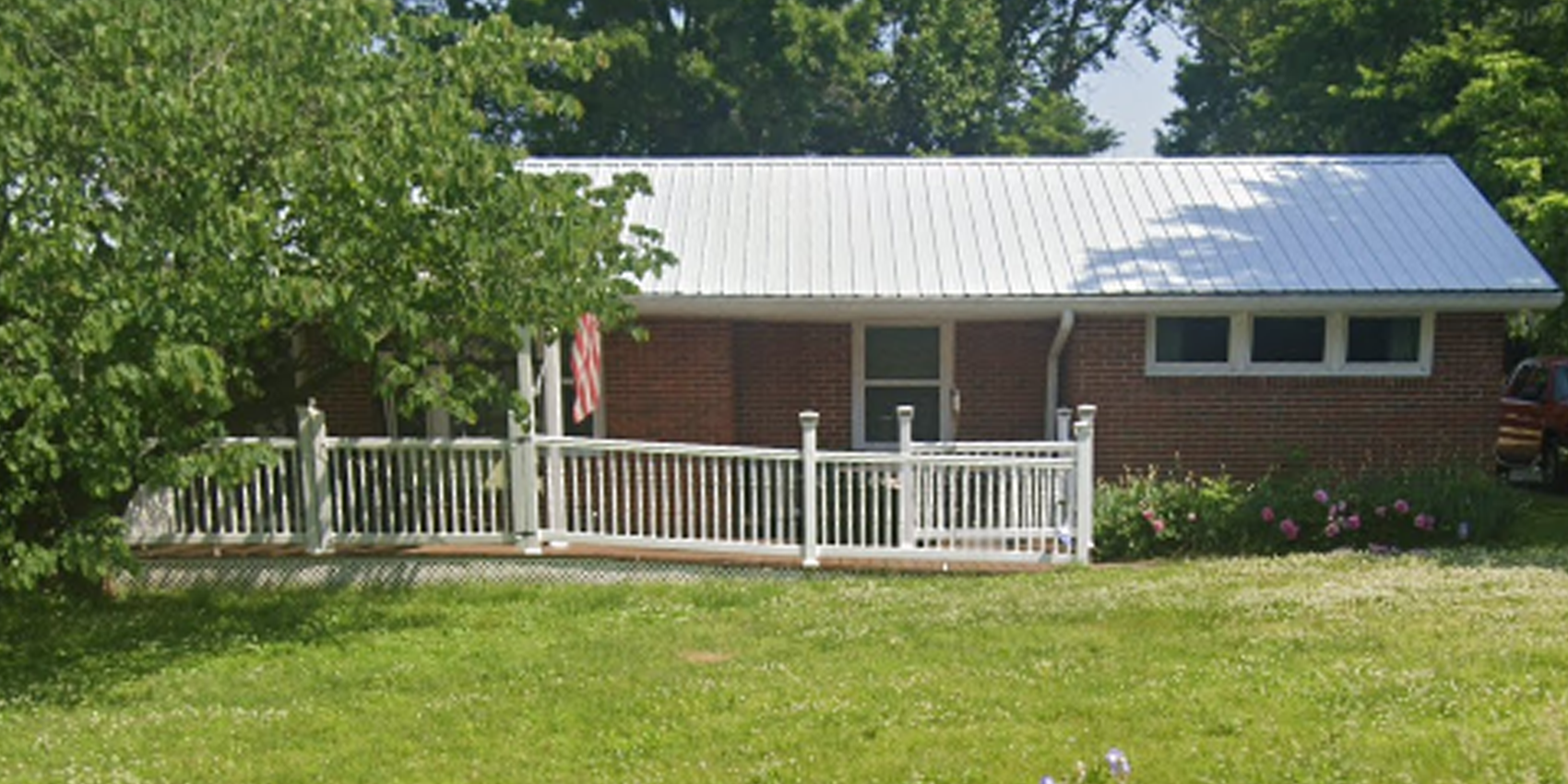THE FUND SUMMARY
10% PA
PREFERRED RETURN DISTRIBUTION
Passive
INCOME
$100,000
Min. Investment
Quarterly
Dividends
$100M
Capital Raise
Accredited
Investors
See How Much Your Investment Can Earn You In a Year
Fund Summary
General Partner
Paradyme Secured Income Fund GP, LLC
Management Company
Paradyme Funding, Inc
Securities Attorney
Carlton Fields
Offering Size
$100,000,000
Minimum Investment
$100,000
Investor Type
Accredited Investors
Preferred Return Distribution
10% - Per Annum
Loan Amounts
$150,000 - $10M
Disposition/ Reposition REO's
70/30 Split
Type of Offering
Reg D 506(c)
Financials Audited
Annually
May use Placement Agents
Broker Deal or RIA's
Elect Option:
REIT
Fund
Evergreen Structure
Loans Provided
1st Trust Deed Mortgages
Short-Term Bridge
Construction and Renovation/ Value Add
Primary Investment Strategy
Primary Investment Strategy
- The Fund’s primary investment strategy will be the direct origination of first deed of trust or mortgage loans on middle-market, value-add, and transitional properties in the United States, primarily in California and Southwestern secondary and tertiary, undersupplied residential markets.
- A typical Loan would provide the borrower with debt financing equal to: (i) 80% of the purchase price or then current fair market value of the real property securing the Loan, whichever is lower, or (ii) 65% of such real property after repair or completed construction value (but in no event greater than 80% of loan-to-cost) with respect to value-add or transitional property.
- Due to the large disparity between supply and demand, Paradyme expects residential construction of all kinds, but especially in the middle market, to be robust. Therefore, the demand for financing is expected to intensify. However, due to the rate at which homeowners and other borrowers have sought debt relief, and the specter of bad debt that has been created, institutional lending has become much harder to obtain.
Why Debt Funds?
Private Debt to Grow 11% Annually to 2025
- Private equity and private debt will be the biggest drivers of the alternative asset class’s growth, according to Preqin. The total AUM of alternatives is expected to climb to $17.16 trillion by the end of 2025.
- Private equity will be the fastest-growing asset class, with AUM increasing to $9.11 trillion in 2025, from $4.41 trillion in 2020, for a growth rate of 15.6% — the fastest-growing asset class over the next five years, Preqin’s research shows.
- Already the largest asset class, private equity will come to dominate the wider alternative asset industry. By the end of 2025, the asset class will account for 53% of all alternatives AUM, Preqin data shows.
*Assets Under Management (AUM) is the total market value of theinvestments that a person or entity handles on behalf of investors.
The Market for Corporate Private Debt Has Grown 4x Over the Past Decade
- Private debt has emerged as a new frontier for credit investors in their search for yield and for borrowers and lenders seeking closer bilateral relationships. The market has grown tenfold in the past decade.
- Assets under management of funds primarily involved in direct
lending surged to $412 billion at end-2020 including nearly $150 Billion in “Dry Powder” available to buy additional private debt assets—according to financial-data provider Preqin.
- Borrowers in this market tend to be smaller (averaging $30 million in EBITDA) and more highly leveraged than issuers in the broadly syndicated leveraged loan market – most are unrated.
Commercial Mortgage REITs Are in a Position to Benefit from Loan Refinancing Wave
- More than 2.1 Trillion in mortgage loans mature by 2025, creating an opportunity for commercial mortgage real estate investment trusts (REITs) and other private real estate direct lenders that finance income-producing properties like apartments, hotels, offices, industrial facilities and retail centers.
- For more than two decades, commercial real estate mortgages have delivered a higher total return with less volatility than investment grade corporate bonds, as measured by LifeComps Commercial Mortgage Loan Index and Barclays Investment Grade Corporate Bond Index.
- Investors looking for income solutions may want to consider mortgage REITs as part of a diversified portfolio.
Why Bridge Financing?
-
- Distressed debt balloons to $1 Trillion. Distressed debt in the U.S. has now quadrupled to nearly $1 Trillion, reaching levels not seen since 2008, as the collapse of oil prices, continued market volatility, and fallout from the coronavirus shutters entire industries across the globe. Investors with an eye on troubled assets have been waiting for a surge in distress after years of easy lending and low interest rates made potential targets scarce.
- Available lenders for both private and institutional have decreased. These risk-averse actions from the US banks show that financial institutions are becoming cautious of lending to riskier businesses, and this gap of capital demand can be filled with non-bank lenders. However, the pool of available lenders putting out capital has decreased as they focus on workouts and other solutions to their non-performing loans resulting from the current Covid-19 pandemic. Many lenders continue to be impaired or permanently out of the market.
Notable Closings

Disclosures
Secured Income Fund Disclosures
© 2021 Paradyme, All Rights Reserved. Our offerings under Rule 506(c) are for accredited investors only. Neither Paradyme Funding, Inc. nor any of its other affiliates are registered investment advisors and do not provide investment advice. Paradyme Funding, Inc. and all of its affiliates do not guarantee any investment performance, outcome, or return of capital for any investment opportunity posted on the site. Investing in commercial real estate entails risk. You should not invest unless you can sustain the risk of loss of capital, including the risk of total loss of capital. This communication is not intended to be relied upon as advice to investors or potential investors and does not take into account the investment objectives, financial situation or needs of any investor. All investors should consider such factors in consultation with a professional advisor of their choosing when deciding if an investment is appropriate.






